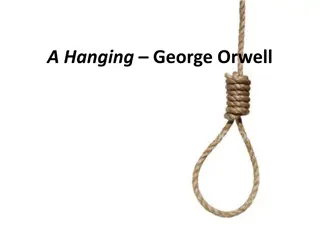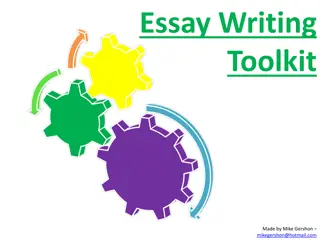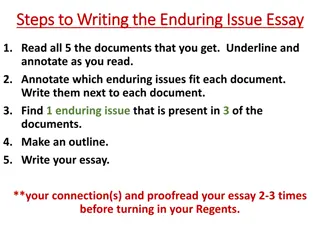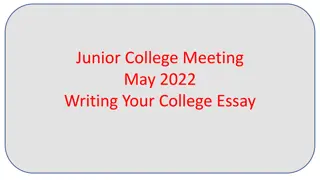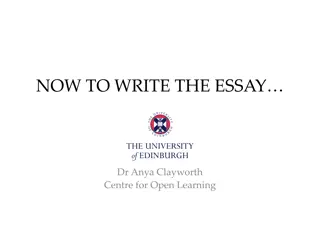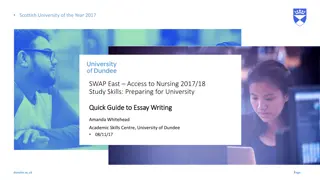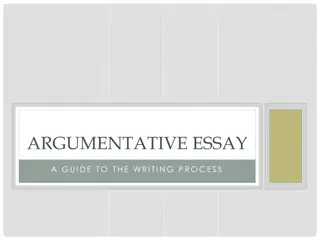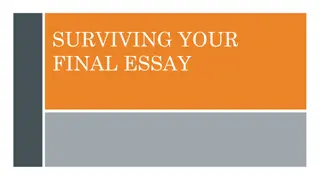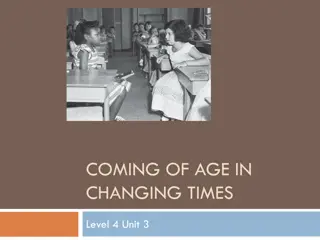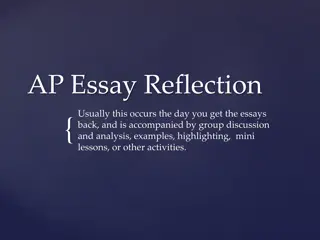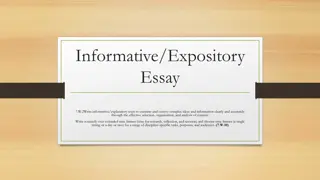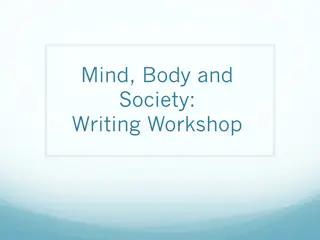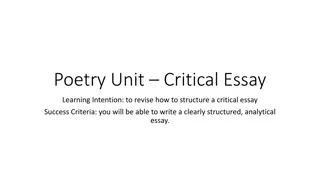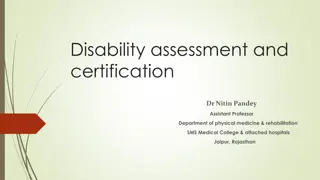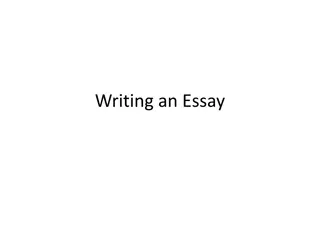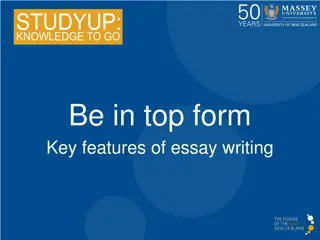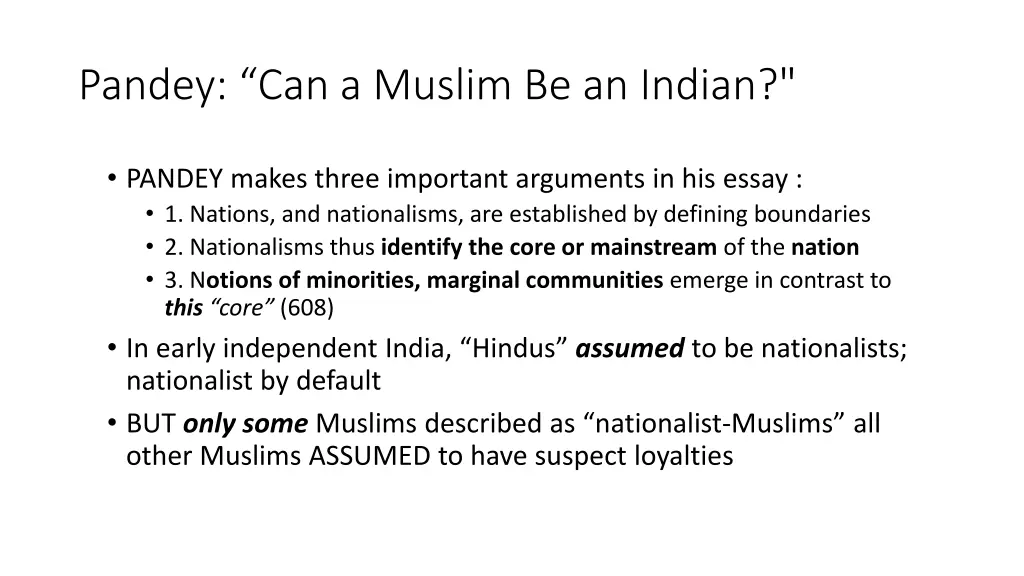
National Identity Formation in Early Independent India
In his essay, Pandey explores the complexities of national identity formation in early independent India, focusing on the treatment of Muslims in relation to the dominant Hindu core. The essay highlights the challenges and contradictions faced by Muslims striving to be recognized as Indian nationalists within a predominantly Hindu-centric framework.
Download Presentation

Please find below an Image/Link to download the presentation.
The content on the website is provided AS IS for your information and personal use only. It may not be sold, licensed, or shared on other websites without obtaining consent from the author. If you encounter any issues during the download, it is possible that the publisher has removed the file from their server.
You are allowed to download the files provided on this website for personal or commercial use, subject to the condition that they are used lawfully. All files are the property of their respective owners.
The content on the website is provided AS IS for your information and personal use only. It may not be sold, licensed, or shared on other websites without obtaining consent from the author.
E N D
Presentation Transcript
Pandey: Can a Muslim Be an Indian?" PANDEY makes three important arguments in his essay : 1. Nations, and nationalisms, are established by defining boundaries 2. Nationalisms thus identify the core or mainstream of the nation 3. Notions of minorities, marginal communities emerge in contrast to this core (608) In early independent India, Hindus assumed to be nationalists; nationalist by default BUT only some Muslims described as nationalist-Muslims all other Muslims ASSUMED to have suspect loyalties
Muslims as hyphenated Indians There was considerable opposition to this idea by important leaders like Gandhi and Nehru Thanks to Nehru, and many in his leadership group, this idea never became central to the outlook of the STATE. However, Pandey argues, the notion of India as Hindu remained an important strand even WITHIN the INC There was, even from those who led the INC and represented it in the media, the demand that Muslims PROVE their loyalty, something never asked of Hindus (617) Only after proving their loyalty could Muslims acquire the hyphenated identity of Nationalist Muslim Hindus, otoh, were just Hindus, their nationalism taken as a given Think of who gets to be hyphenated and who the unhyphenated Americans are!
Origins in Hindu Nationalism This really is Savarkar s legacy for early-independent India Savarkar said: the tie of common holyland has at times proved stronger than the chains of a Motherland. Look at the Mohammedans [commonly-used word for Muslims]. Mecca to them is a sterner reality than Delhi or Agra. Some of them do not make any secret of being bound to sacrifice all India if that be to the glory of Islam or could save the city of their prophet (52) Compare with Patel speaking to Indian Muslims, quoted in Pandey: ... don't pretend to say 'Oh, our affection is great for you.' We have seen your affection. Let us forget the affection. Let us face the realities. Ask yourself whether you really want to stand here and cooperate with us or you want to play disruptive tactics (620) Or GB Pant, Chief Minister of India s largest state (Uttar Pradesh)and successor to Patel "Every Muslim in India would be required to shed his blood fighting the Pakistani hordes, and each one should search his heart now, and decide whether he should migrate to Pakistan or not (617) Or even more bluntly, Sampoornanand, Pant s successor in Uttar Pradesh If, "God forbid," there was ever a war between India and Pakistan, "our worries will be greatly increased, for it is not impossible that the sympathies of our Muslim population will veer towards Pakistan (616)
Pandeys Argument Pandey is NOT saying that Hindu Nationalism was the ruling ideology of early independent India To the contrary, in response to: Which were the Muslims who had the right to stay on in India? Gandhi and Nehru and other major nationalist leaders answered the question categorically in 1947 and 1948: all those who wished to (615) What Pandey IS arguing though is that ALL nations depend on the creation of a cultural core (whether maleness, whiteness or Hindu-ness) and through this, other groups get identified a minorities Ca. 1947, there was consensus that Hindu-ness was at the core of an Indian identity Some (like Patel) went further to suspect the loyalties of Muslims, but the others (like Nehru) did not


